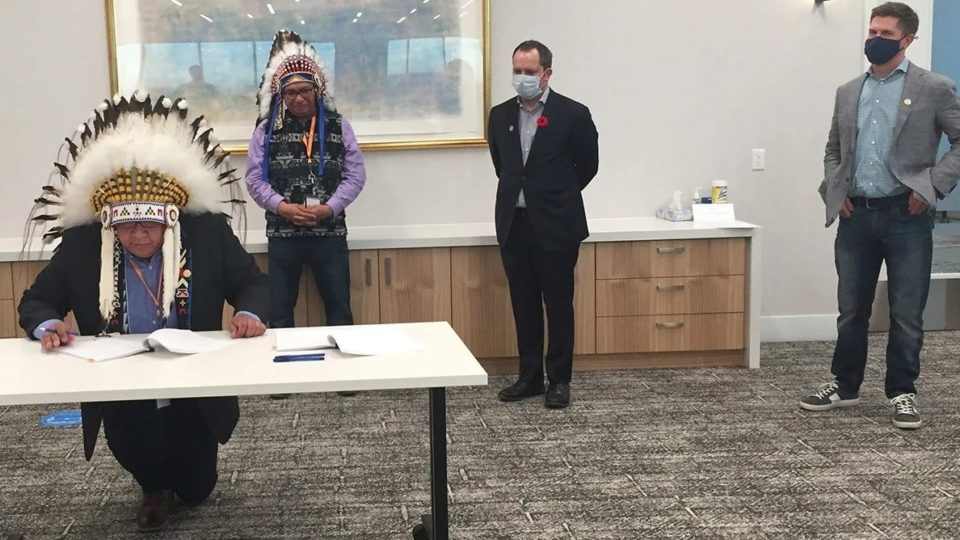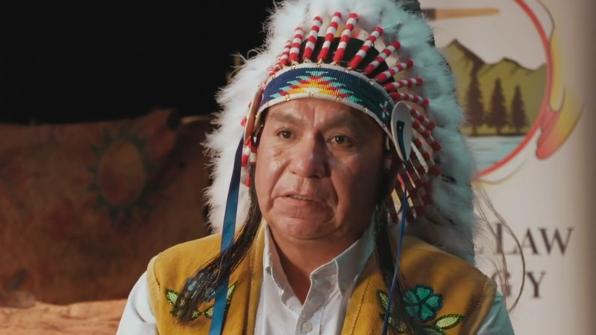‘This could change the outlook of all First Nations in Canada and the US’

“I would say ‘President Biden, I do believe you made a bad decision putting Keystone on the backburner,’” said Francis, who leads a coalition of Canadian First Nations that entered into an equity agreement on the Keystone XL pipeline.
“I don’t think he realizes how far behind we are as Indigenous people from an economic development perspective.
“This could change the outlook of all First Nations in Canada and the US.”
Natural Law Energy, a group of five Alberta and Saskatchewan First Nations, entered into a $1 billion equity agreement for a 12 per cent stake of TC Energy’s Keystone XL pipeline project last September.
Francis, the president of Natural Law Energy and Chief of the Nekaneet First Nation near Maple Creek, is also a father and a grandfather who sees the $8 billion project as an economic lifeline that will help pull First Nations out of poverty while staking out a brighter future for generations to come.
And that’s a crucial yet often forgotten piece of the Keystone XL story that Francis would like the 46th president of Canada’s closest ally to know.
The equity partnership between Nekaneet and four other First Nations – the Ermineskin Cree, Montana, Saddle Lake Cree and Louis Bull Tribe – aimed to not only create a solid economic foundation to build on for their communities, but to ensure the project met the highest environmental and social standards by those who’ve been stewards of the land for generations.
That partnership is in addition to Keystone XL’s commitment to sourcing goods and services from First Nations communities on both sides of the border.
As of last September, Keystone XL had invested $1.6 million directly and another $16.6 million indirectly with Native American businesses and suppliers in the US. On the Canadian side, some $15.5 million in direct investment and another $21.7 in indirect spending supported Canadian First Nations contractors.
Those are some of the details, says Francis, that are being lost in the debate over the future of the pipeline, which would upon completion transport up to 830,000 barrels per day to U.S. Gulf Coast refineries, many of which are specifically tailored to process heavy crude like what is primarily produced in Alberta.

“I was quite devastated by the news. Those jobs are not only on the Canadian side, but the US side as well,” Francis said.
“I think if we could get on a phone call with (Biden) it would open his eyes. I think if we could tell our story about how this is going to support our children and our grandchildren, and how this project can help us build better and stronger communities we could find a way to make all parties happy.”
But despite weathering a difficult week following Biden’s revocation of Keystone XL’s presidential permit, Francis said he still has some degree of optimism that the merits and benefits of the project will ultimately be too persuasive to ignore.
“I always think of the glass as half full,” said Francis with a chuckle.
“This is a project that’s going to benefit both sides of the border so how do we get back to the drawing board to salvage this? What we want is to see a better future for our youth, so the challenge we have is how do we build that better future for them? And I think Keystone is a part of that.”
Share This:





 CDN NEWS |
CDN NEWS |  US NEWS
US NEWS 

































Canada’s Advantage as the World’s Demand for Plastic Continues to Grow